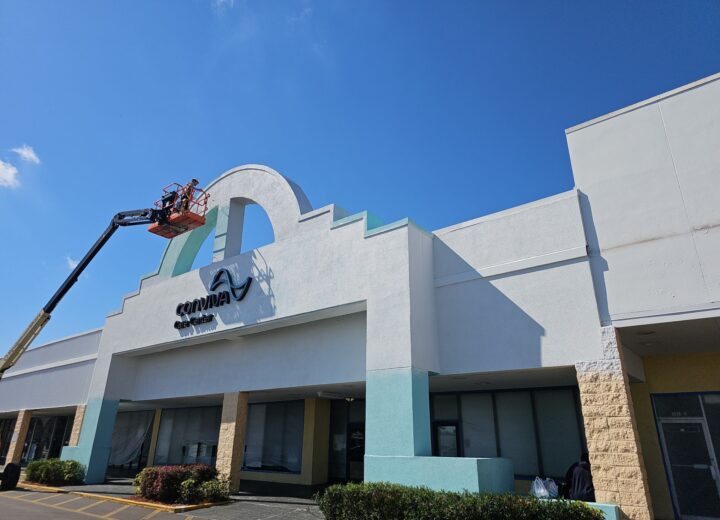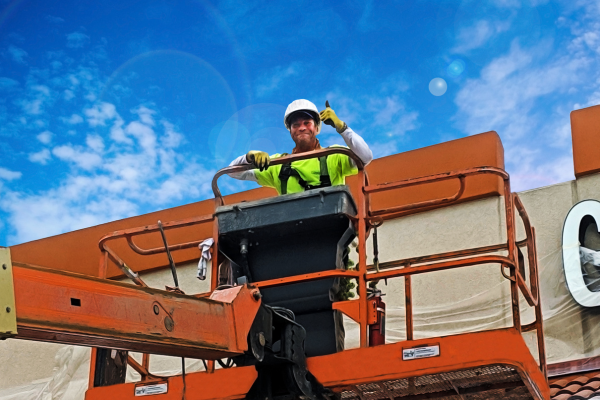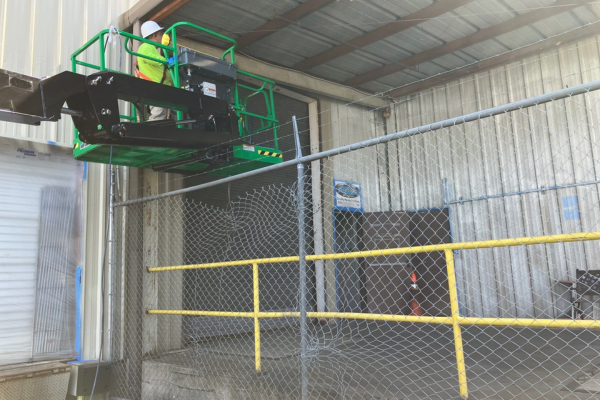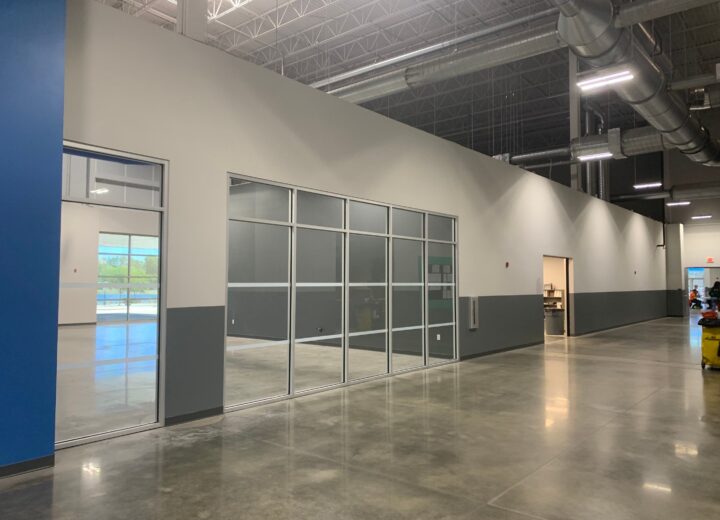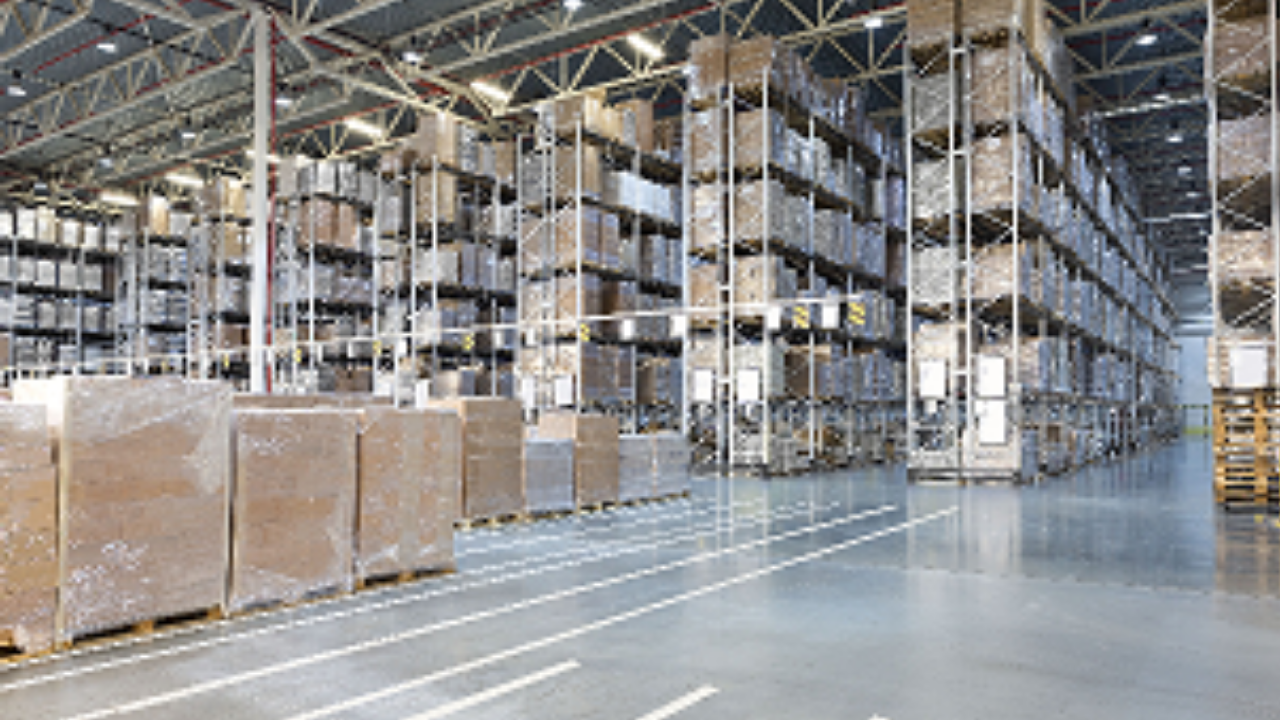 Urethane is one of several different coating types that can be effective in an industrial workplace. A urethane-coated floor is perhaps the most common of all alternatives to the standard epoxy flooring system.
Urethane is one of several different coating types that can be effective in an industrial workplace. A urethane-coated floor is perhaps the most common of all alternatives to the standard epoxy flooring system.
Although these two floors can look similar when new, they perform very differently.
Urethane is a synthetic, crystalline compound found in a variety of products. Outside of industrial environments, it is also used to seal decorative concrete and stone. It is an organic plastic, extremely resistant to wear and abrasion, and usually used as a topcoat.
Aside from flooring, urethane is desirable for improving the lifespan of certain industrial materials. It is especially useful for stainless steel, aluminum, and titanium, and for strategic metal equipment that is situated indoors.
The Benefits of Urethane Flooring Systems in an Industrial Workplace
Some of the key benefits of urethane include:
1. Aesthetics
Urethane enables higher gloss and greater color retention than epoxy flooring. Even if the floor undergoes heavy use, it will not fade as much as the alternatives. Ten years on, the difference between a urethane and epoxy floor can be quite striking.
Urethane also comes in a broader spectrum of colors than other industrial flooring systems. If your facility hosts guests or inspectors, this can be a good way to make an impression. When appearance is a major factor, urethane is the superior choice in all respects.
If you are satisfied with the current appearance of your floor, urethane can also be applied clear. This allows the underlying colors and textures of your existing floor to show through effectively.
2. Durability
Foot traffic, abrasion, and corrosion are all common industrial hazards urethane manages well. It also stands up well when heavy equipment is in use. The lack of visible surface abrasions can make safety painting easier and keep lanes of transit visible.
Urethane also has a special advantage in industrial UV resistance. Resistance to ultraviolet radiation can slow the degradation of exterior surfaces and materials exposed to the elements. Rain, snow, and other outdoor hazards can also be mitigated.
Urethane floors do not have the same potential for “slipperiness” that polished concrete does, yet they stand up well for regular, daily use. This makes it easier to avoid slip and fall accidents. Urethane can also endure the frequent use of heavy equipment, like forklifts.
3. Longevity
Longevity is one of the major considerations when choosing to update an industrial flooring system. Urethane’s longevity outperforms epoxy in almost all cases. In fact, it rates as one of the longest-lasting industrial coatings.
The time between urethane applications varies based on the environment, but one coating will often maintain its performance qualities for a decade or longer.
4. Ease of Maintenance
During the application process, urethane takes longer to cure but remains relatively tolerant of changing environmental conditions. That makes it easy to use with a minimal chance of rework. Once urethane has cured properly, it is virtually indestructible. Floor maintenance becomes rare and straightforward.
Although urethane is often discussed in flooring, it has several other industrial uses to know about. Many industrial environments produce conditions that make urethane an ideal top coating.
What Industrial Environments Is Urethane Best For?
Overall, urethane offers a good balance of performance factors that improve the service life of your facility while making it safer. It can stand alone as a coating or be applied as part of a multi-coat system that synthesizes the benefits of several products.
Urethane coatings are most common in OEM manufacturing, but can also be used in structural steel, petrochemical plants, electrical plants, paper mills, masonry surfaces, and on steel storage tanks. In general, it is appropriate for more demanding applications than epoxy.
In addition to flooring, urethane is very effective for critical equipment that isn’t exposed to harsh environmental conditions. The thin-film, high-gloss finish it presents when used for metal coating has some of the best weathering characteristics of any industrial coating.
That said, urethane is best paired with metals that have their own corrosion resistance. Titanium, stainless steel, and aluminum are natural fits for urethane. Because it is not a good rust inhibitor, urethane should not be used as a “direct-to-rust” topcoat.
Get Your Urethane Coating Application from Expert Industrial Painters
Although urethane and epoxy share some similarities, they are quite different. Application is one way that urethane stands out. Expert industrial painting contractors should be engaged every step of the way in planning, applying, curing, and maintaining your industrial urethane coatings.
Performance Painting Contractors has years of experience with painting projects in industrial environments. Our team members understand how coating and substrate properties interact, ensuring you get the most durable coating every time.

